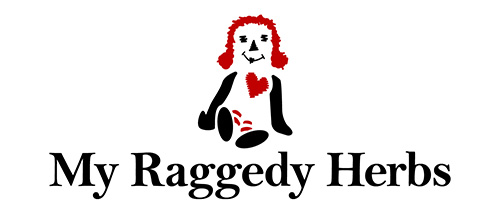I was visiting with a friend who is an expert in cyber security. He was telling me fascinating facts about cyber-attacks, and it just blew my mind. While I was trying to wrap my head around the amount of effort that a “bad guy” will go through for personal gain and to inflict intentional harm, he was intrigued with how the “bad guy” could totally compromise software without ever really knowing its original creator.
He said, “Once a hacker breaks into the software, he may be able to see all of the code. He may be able to see all the information and details, but what he cannot see, or ever know, is what the creator of that specific software intended. He was not there from the beginning, nor was he in the mind of the creator. So, at best, all he can do is attempt to steal, understand or interpret what he is looking at.”
After my friend left, it struck me—that’s exactly what we do when try to understand the incredible category of plants that we call herbs.
I love herbs! That’s why I’m an herbalist. I have an appreciation for everything about them. I love the way they look, smell, taste and feel. I love the fact that they are good for cooking, tea, medicine, pollination and a million other things.
But each time I plant one, I realize that I’m growing herbs in central Oklahoma where edible gardening is harsh. On top of that, I’m growing them in a fallen world. No matter how many garden amendments I make and how much effort I put forth, that plant can only turn out so good.
The original herb plants that God created I’m sure were incredible! Imagine with me for a minute walking next to God and listening to Him explain what He had in mind when He created lavender? What do you think He will say when He tells the story of elderberry, basil or tulsi? I’m sure we will stand in awe as the Creator shares what He was thinking when He spoke them into existence and His words will be much different than what we thought we knew about them.
So often with herb gardening, I feel like we are hackers. We have hacked into God’s plant system, and even though we can see much of the beauty, information and details, we have no idea how much more there is behind it. We use herbs for our personal gain, and sometimes people even use them to inflict intentional harm onto others, but only God knows how special these plants are and what He intended for them.
Herbs are simply a category of plants like no other. They are mesmerizing and fantastic. When you hold them, consume them and grow them you can sense God’s provision and care for us. Long before there were grocery stores or pharmacies, God Himself planted a garden, and in that garden, He grew seed-yielding herbs, and He saw that they were good. It is unfortunate that our food system today, and even our pharmaceutical system, is oftentimes weaponized against us. But from the beginning, God provided, and now it’s up to us to be good stewards.
If you have never grown herbs, let me encourage you to try. With the 2023 growing season in front of us, there are a lot of possibilities. Perhaps you could consider growing a few at your house. They don’t require a lot of space and can be easily maintained with minimal care. Selecting the proper varieties is important for success, so do a little homework before visiting the nursery.
As the old herbalist saying goes, “It’s better to know a hundred uses for one herb than one use for a hundred herbs.” You don’t need to plant several to benefit. Plan to grow just a few but learn to use them well.
“And God said, Behold, I have given you every herb bearing seed, which is upon the face of all the earth, and every tree, in the which is the fruit of a tree yielding seed; to you it shall be for meat” (Gen. 1:29).

